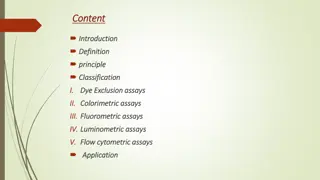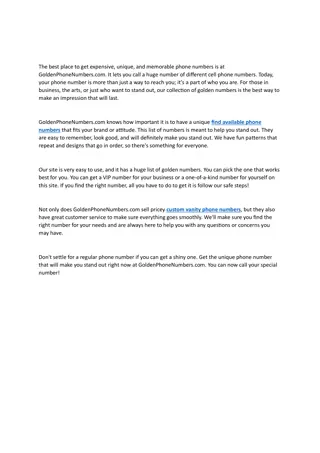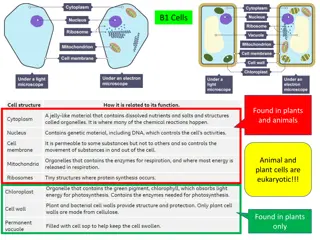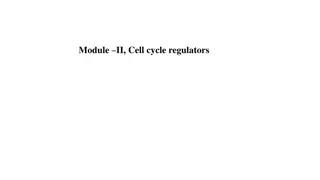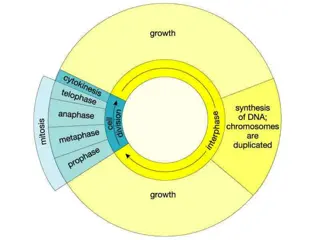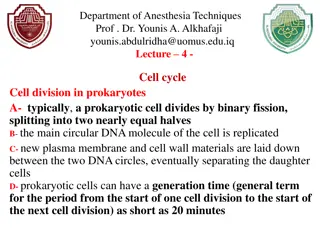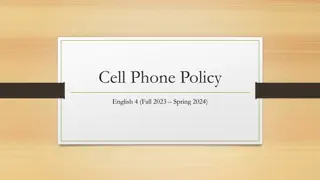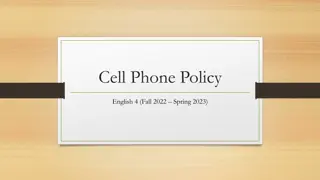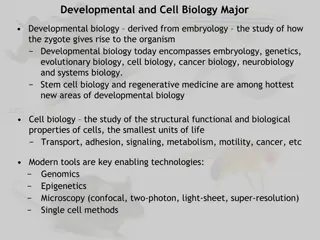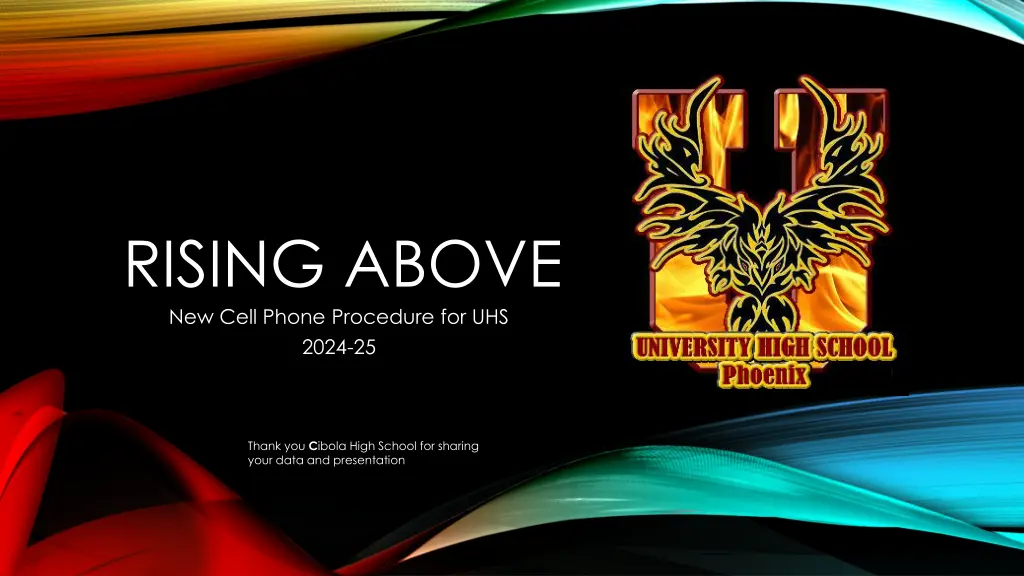
Teen Cell Phone Usage Trends: Impacts, Benefits, and Solutions
Explore the rising trends of teen cell phone ownership and usage in 2023, along with the benefits, negative impacts, and solutions associated with excessive phone usage. Discover how technology impacts teenagers' daily lives and education, highlighting concerns such as cyberbullying, distraction, and technology addiction.
Download Presentation

Please find below an Image/Link to download the presentation.
The content on the website is provided AS IS for your information and personal use only. It may not be sold, licensed, or shared on other websites without obtaining consent from the author. If you encounter any issues during the download, it is possible that the publisher has removed the file from their server.
You are allowed to download the files provided on this website for personal or commercial use, subject to the condition that they are used lawfully. All files are the property of their respective owners.
The content on the website is provided AS IS for your information and personal use only. It may not be sold, licensed, or shared on other websites without obtaining consent from the author.
E N D
Presentation Transcript
RISING ABOVE New Cell Phone Procedure for UHS 2024-25 Thank you Cibola High School for sharing your data and presentation
University High School is dedicated to creating a culture of learning Academic, and Employability To access these skills, students need to be fully engaged in their education and their trade. This requires the ability to interact with their peers and teachers.
SMART PHONE OWNERSHIP AMONG TEENAGERS According to a Pew Research Center Poll conducted from September through October of 2023, 95% of teens have access to a smartphone. 91% of 14 year-olds own a phone 92% of 15 year-olds own a phone 95% of 16 year-olds own a phone 97% of 17 year-olds own a phone 93% of 18 year-olds own a phone 31% of 8 year-olds own a phone (WHY?)
TEEN CELL PHONE USAGE IN 2023, COMMON SENSE PUBLISHED A REPORT, CONSTANT COMPANION: A WEEK IN THE LIFE OF A YOUNG PERSON S SMARTPHONE USE. Teenagers spend an average of 4.5 hours on their cell phones daily. That is over 31 hours a week which is equivalent to the time they spend in a classroom. Every year, teenagers spend over 1,600 hours on their cell phones. This staggering figure shows how much of an influence the digital era and social media can have on children. Including smart phones, laptops, and tablets teens spend more than 7.5 hours looking at a screen each day. Many teenagers spend more time on their devices than with their parents, their teachers, or even sleeping!!
THE BENEFITS, THE NEGATIVE IMPACTS, AND THE SOLUTIONS Cell phones are necessary for communication with family and friends, and have value in some social situations. They are useful for navigation, recording memories, and safety concerns when away from home. When unable to access other technology, phones can be used for learning and research, but . . .
THE BENEFITS, THE NEGATIVE IMPACTS, AND THE SOLUTIONS Cell phone use results in increased cyberbullying, cheating, and are a distraction to the learning process. Technology addiction is a growing concern. Many school districts around the country and in other countries are banning cell phones from school campuses. Other school districts are locking phones up when students arrive to campus and returning them at the end of the day.
THE MULTITASKING MYTH Many teenagers (and adults!) believe they are able to successfully interact on their device while listening to a teacher or working on an assignment this is called the Multitasking Myth! Teenagers say they have mastered the skill of multitasking and believe that engaging in other activities (consuming media, texting, and engaging in social media, for example) while doing homework doesn t have a negative impact on their ability to study or learn. Unfortunately for them, research has shown that the notion of effective multitasking is simply a myth. (The Myth of Teen Multitasking Jim Liebelt) What Multitasking Does to your Brain
TEENAGERS GET AN AVERAGE OF 237 NOTIFICATIONS A DAY (CONSTANT COMPANION: A WEEK IN THE LIFE OF A YOUNG PERSON S SMARTPHONE USE, 2023) Classroom Distractions Interruptions on our attention and focus Whether it s buzz, bell, or ding, getting a phone notification can be pretty exciting. Is it your: Best friend? Mom? Crush?
TEENAGERS GET AN AVERAGE OF 237 NOTIFICATIONS A DAY (CONSTANT COMPANION: A WEEK IN THE LIFE OF A YOUNG PERSON S SMARTPHONE USE, 2023) Interruptions on our attention and focus Despite not knowing what awaits you in the three short seconds it takes you to lift up your phone and look at your screen, we know that the notification will spur some sort of reaction. The alerts from phones or even the anticipation of them, shuts off the prefrontal cortex that regulates higher-level cognitive functions, and instead, forces the brain to send emergency signals to the body. Bustle.com Nov 15, 2019 This means that every time you get a notification, your body gets a rush, but not necessarily a good one. Even when phones are silenced, the effect of a lit screen or vibration due to an incoming notification has real ramifications for a student s ability to remain focused on instruction.
9 SHOCKING THINGS THAT HAPPEN TO YOUR BRAIN WHEN YOU GET A PHONE NOTIFICATION CAROLYN STEBER BUSTLE.COM 2019 1. You get distracted Studies show that when we are interrupted it takes our brains on average 23 minutes to return our focus to what we were working on before the interruption 2. You feel good Notifications can trigger dopamine, the reward neurotransmitter, to be released in the brain, Dr. Jackson says, and that can make you feel good. 3. Your brain tries to multitask Most people feel they can multitask but the brain is not meant to do so, Dr. Jackson says. When you multitask you often do not give your best to both or all tasks you are juggling. And every time you switch back and forth from tasks you also get a rise in cortisol, a stress hormone. 4. Anxiety can creep in Thanks to the rise in cortisol, it s not uncommon to feel stressed when receiving notifications.
9 SHOCKING THINGS THAT HAPPEN TO YOUR BRAIN WHEN YOU GET A PHONE NOTIFICATION CAROLYN STEBER BUSTLE.COM 2019 5. You aren t fully present Even if you try really hard to multitask, it s not actually possible to do two things at the same time. 6. You can feel angry Notifications trigger a dopamine release, which not only feels good but can train you to take action and respond, psychotherapist Michele Pavia, tells Bustle. Add in serotonin, a chemical that makes you feel valued, as well as endorphins, which can provide a sense of excitement (or anxiety), and you might notice that alerts can cause quite the emotional response. 7. Burnout can occur With alerts coming through on a regular basis, your brain s dopamine and cortisol pathways can become worn out by the constant overstimulation and you will find yourself more anxious and less happy, 8. You can become addicted Due to the Release of all those aforementioned brain chemicals, and the rewarding feelings you can get from receiving notifications, it s not uncommon to experience tech addiction, Dr. Zehndorfer says. 9. It can mask emotional pain Notifications can not only be used as a form of distraction, but they also provide a rush of excitement, which can be a way of masking emotional pain.
UNIVERSITY HIGH SCHOOL CELL PHONE PROCEDURE 2024-25 SCHOOL YEAR Cell phones are not to be used during instructional time. Cell Phones must be stored in classroom pocket holders. They are not to be on the student s person during instructional time. Cell phones may not be taken from the classroom when taking a restroom break.
UNIVERSITY HIGH SCHOOL CELL PHONE PROCEDURE 2024-25 SCHOOL YEAR Violation of the cell phone policy will result in the following: 1st violation Teacher issues a verbal warning. The warning is issued only one time per teacher per student, not one time per day 2nd Violation Teacher confiscates cell phone or electronic device, documents confiscation, parent notification, and returns to the student at the end of the period. 3rd Violation Teacher confiscation, documents second confiscation, calls security to pick up phone, administration will notify parent, and office returns phone to the student at the end of the day. 4th Violation Teacher confiscation, documents third confiscation, calls security to pick up phone, administration will notify parent, phone returned to parent. 5th Violation - Teacher confiscation, documents fourth confiscation, calls security to pick up phone, administration will notify parent, phone returned to parent after student completes community service. **Cell phones may not be taken from the classroom when taking a restroom break.
EXCEPTIONS TO THE PROCEDURE Are you or a family member experiencing an emergency or health scare and you are waiting for an important update? Speak to your teacher about any extenuating circumstances. During a campus emergency, students may remove their phones from cell phone pocket holder and keep them with them, especially if we are leaving the building or campus.
THANK YOU FOR SUPPORTING OUR STAFF AND YOUR STUDENT S LEARNING University High School administration, faculty, and staff are dedicated to providing the best possible education. They are highly qualified, experienced, and passionate about learning. Minimizing distraction in the classroom for students will ensure that everyone has access to a positive culture of learning and an excellent educational experience.


